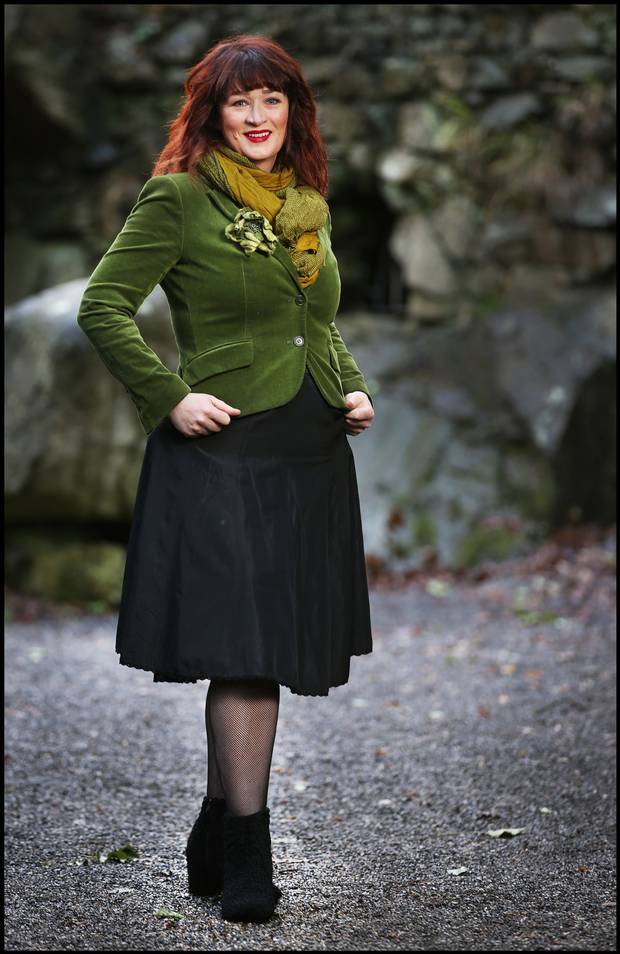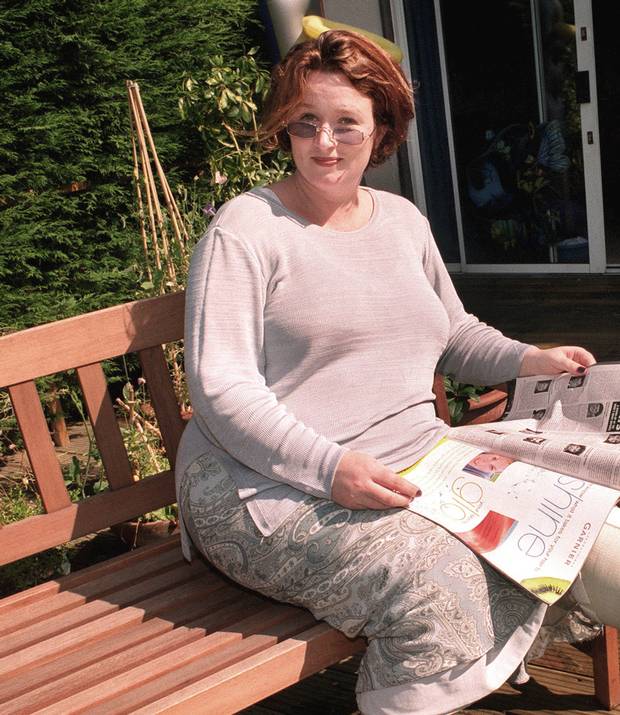
I haven’t had a conversation about weight in a long time.
For years it was one of my staple topics, I was fat, and discussing it was a defence mechanism and an apology rolled into one. It was especially acute if it was someone I hadn’t seen for a while, someone I hadn’t seen since I got fat. No-one ever said: “Whoa, you’ve got a bit porky,” but something propelled me to put it out there, it felt more acceptable if the elephant announced it was in the room. It was also a plea for the inevitable disagreement, “You’re not fat!” But I was. I knew it, I hated it and I did nothing about it. Except every single fad diet ever.
All of the wisdom about accepting yourself as you are, beauty being more than skin deep and in the eye of the beholder is well-intentioned and a good message. But it glosses over the fact that weight, both too much and too little, is very often about much more than appearances, health or calories.

The maths of eat less weigh less are simple. Some people put on weight, cut back on calories, lose the weight – and Bob is your much trimmer uncle.
For others, there is far more to both getting fat and staying fat than simple calorie equations, willpower or accepting yourself. If you are happy in your body, whatever its size, your weight is not an issue. If you are uncomfortable with the body in which you live, it is an issue.

Strange though it may sound, sometimes feeling bad about your body is simpler than dealing with more complex emotions – even trauma. When compared to old, raw, painful feelings or memories, ones that make life difficult, focusing on feeling bad about weight can be a useful distraction. It is easier to say ‘I am unhappy because I am fat’ than to deal with other potential causes of unhappiness. It’s easier to think a diet would fix your life instead of a divorce, admitting you hate your kids, changing jobs, moving to an ashram or coming out.
And in order for that distraction to work, you have to stay fat.
Food and sex are human imperatives, hunger and libido our life forces, and they are intrinsically linked. Eating also releases the same endorphins as sex does but humans have managed to develop quite a selection of hang-ups about sex so a lot of the sex people are having is unsatisfactory.
It might be that there isn’t enough, it’s poor quality, with someone you don’t fancy or your real desires are repressed, sometimes a slice of cake is just simpler.
In a world that feels out of control, maybe it feels like the only thing you can control is what you eat. Being overweight can be like a comfort blanket, it can also feel like an invisibility cloak. It is tempting to think that being overweight makes you unattractive but it’s how you feel about yourself that stops you being gorgeous.
A study in the Journal of Sexual Medicine found that, for women in particular, size doesn’t matter – not their own size anyway. Thin or overweight, women with a poor body image were less sexually fulfilled because they were uncomfortable. That affects your partner, your whole life because feeling good about yourself changes everything from what you wear to how you drive.
I was some degree of overweight for years. In the grand scheme of life, weight should not be that important, but I obsessed over it, I was ashamed of myself, I hated my body. Weight was like a prison that I couldn’t escape from.
And I’m not proud to admit that I obsessed in a victim-y way. I didn’t think it was anyone’s fault I was fat but I wasn’t honest with myself about what I ate. It has to have been that because at this stage, I probably know as much about calorie content as the average dietician, so I couldn’t plead food ignorance. It was food delusion. At various times, I blamed my thyroid, my metabolism, my hormones, medication and whatever else I happened across as a possible explanation. And indeed at one point in my 20s I put on three stone in five months after a dose of steroids, I’d had to have been eating professionally to do that with food alone. Meds and health issues absolutely can be factors in weight gain, but bar that one time, they were not mine.
Perhaps this half-belief that external factors were at play was why none of the approximately 7,000 diets I tried ever worked.
I had my blood tested for allergies, coffee apparently was making me fat. I did the Atkins, I did the lemon detox, cabbage soup heart diet, food combining, food excluding, seven: two, three: four, I did paleo, ketogenic, white foods, no foods, I bought drops and supplements and books and plans. I joined clubs and I wore cellulite melting hot pants (the noise when you walk is just plain bizarre).
I did the same with exercise – no regime, no machine went untried. The Proclaimers have nothing on how far I walked. I ran, did hot yoga, cold yoga, pilates, boxing, boot camp, Zumba and spinning (it’s painful on a rather specific body part, this part I was assured would toughen up. Um, yeah, I was thinking tremendous thigh muscles and glutes of steel not a leathery fandango).
And with every weight loss scheme, I did succeed. Before I failed. Part of it was that I would inevitably set myself up for failure, and even when I worked that out, I still bloody did it.
Eight pounds a month is regarded as a healthy weight loss. Really, any loss is good. But not good enough for me. Partly because at times I had so much to lose and partly because patience is not one of my personal virtues, I had to aim for 20 and if I didn’t achieve it, when I didn’t achieve it, there was more proof of what a failure I was. And that somehow was an excuse to give up and put back on all the weight I had lost, and more.
It was a cycle of not liking myself and not really doing anything about it. It was self-indulgent, self-pitying and fed a sense of failure and self-loathing. You either get this or you don’t.
Four years ago, I just couldn’t face the idea of starting another new year with another diet. Another carefully written-up set of dated weight-loss goals seemed like setting myself up for failure again. I had to break that cycle. I also realised that I had become someone I didn’t like.
I didn’t go out much, I didn’t try new things or meet new people any more. I was a bit of a shrew, judgemental and occasionally disapproving of anyone who didn’t allow themselves to feel as repressed and limited as I did.
It creeps me out to even think I was that woman, not least because the only person to blame for that was me. I felt bad about myself, I was angry a lot of the time, angry at myself that spilled over into other things. But you can’t fix what you don’t see and you can’t see what you don’t acknowledge. I had to take responsibility for being happy.
For once I didn’t focus on weight. I focused on expanding my world, I did a course, I worked more, I made a point of saying yes to everything I was offered. I noticed after a few weeks that my appetite had really shrunk.
My body, maybe wary of another round of diet and binge, didn’t respond instantly, but then it relented. It was as if it knew something fundamental had changed. I got the opportunity to do weight loss hypnosis but it soon emerged that eating, or even self-loathing was not my real problem.
Anxiety was.
Somewhere over time my brain had hit on self-loathing as a great way to mask the anxiety that I had known since childhood and as I lost the reason to feel bad about myself, the anxiety returned to the sleep-destroying, panic attack levels I had known in my teens and twenties. The hypnosis ended up becoming more about that.
I lost 50lb in under six months. It is quite a change to adapt to. The new wardrobe is the least of it. It is like being freed from a tyrannical regime.
It sounds nuts, but it is weird to be comfortable with yourself. It is also strange to be visible.
No-one knows you better than your children and both of mine say I am easier to be around, calmer. What they don’t say but what they mean is that I am nicer. It perhaps isn’t too surprising that when you’re not raging at yourself, you don’t rage at anyone else either.
Kicking myself in the bum, making it slightly less ample, broke a cycle and created a freedom that changed so much more than my dress size. It hasn’t all been relentless fabulousness since, but not being a constant source of disappointment and anger changes how you cope and what you see.
My anxiety, the constant lives-in-your-belly, don’t-even-know-what-you’re-anxious-about stuff, is gone.
Some of the weight has gone back on, there’s a stone that floats on and off depending on how busy/complacent I’m being. But now it is just a bit of weight, not a complex emotional event. There’s still weirdness, how I feel about my body changes according to how I feel in my head.
But I’m 50 years of age. I have had kids, I have been seriously fat, I like to eat, and I don’t always want to exercise.
I believe it’s called normal.
Meanwhile…
Meet Dr Zoe Harcombe, author and PhD, who knows all about the misery of yo-yo dieting. She began her first diet in school and spent years gaining and losing weight until she focused her scientific training on finding a solution. She has spent the past 20 years studying diet, eating habits and the worldwide obesity crisis and is now said to be the go-to nutrition expert for some of the world’s leading doctors.
In our edited extract from her new book The Diet Fix, Zoe reveals her 10-step plan to losing weight for good. She explains the science behind weight loss and shatters the myth that calories matter.
Her motivational tips will help you break the old emotional patterns that so often torpedo weight-loss. And you’ll feel healthier and have more energy.
Plus, to get you started, Zoe shares her easy-to-follow seven-day eating plan complete with recipes and food tips.
Here’s the plan: I’ll tell you how to lose weight and keep it off forever
Sunday Indo Living
